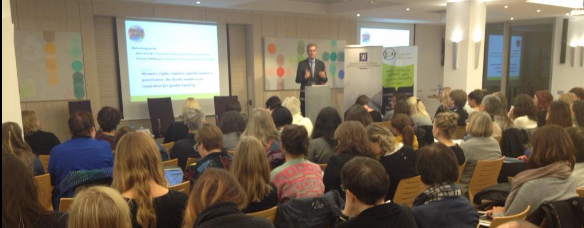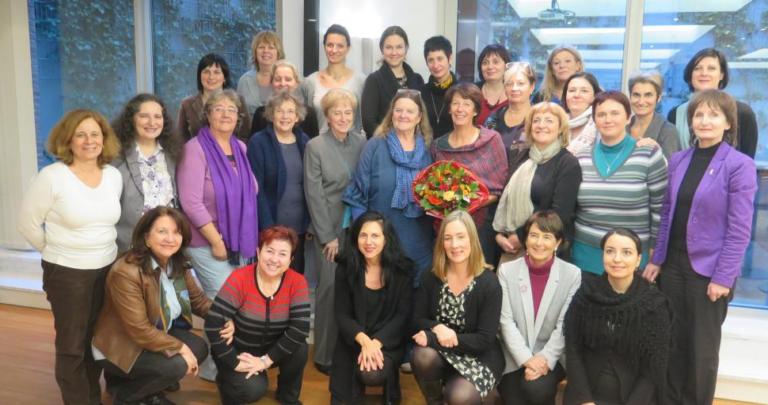The evaluation of the ban on the purchase of sexual services
Sweden became the first country in the world to introduce legislation criminalizing the purchase of sexual services but not the sale.
During 2009-2010 there has been an evaluation of the ban. The remit was to evaluate the application of the ban and the effects that the prohibition has had. One starting point was that the purchase of sexual services was to remain criminalized. There is a clear link between the existence of prostitution and human trafficking for sexual exploitation.
Those who defend prostitution argue it is possible to differentiate between voluntary and non-voluntary prostitution, that adults should have the right to freely sell and freely buy sex and that the ban represents an outdated position, based on an old fashion moral on sex and a patriarchal society. However based on gender equality and human rights perspective and shifting focus from those who are exploited in prostitution to demand( buyers, pimps and traffickers) there is no need to have a distinction between voluntary and non-voluntary prostitution.
The results
Street prostitution has halved in Sweden since the ban. There is no indications of that women in prostitution that formerly were exploited in street prostitution now are involved in indoor prostitution. There is no increase in indoor prostitution, e.g massage parlours, sex clubs and night clubs.
Internet prostitution has increased in Sweden as in the other Nordic countries. However the scale of this form of prostitution is more extensive in our neighboring countries and there is no indication of a greater increase in Sweden than in these comparable countries.
Since those involved in prostitution activities need to promote themselves in order to come in contact with buyers it is unlikely that prostitution can exist on any great scale an remain entirely unknown.
The ban of purchasing sexual services has also act as a barrier to human traffickers and procurers considering establishing themselves in Sweden.
The attitudes in Sweden have changed in these 10 years so now more than 80% of the population is in favor of the ban and among men attitudes also changed. 1999 13% of men in Sweden had bought or considered buying sexual services and now the number is 7.8%.
Before the ban was introduced a lot of voices argued that criminalization would risk driving prostitution underground making it harder to reach out to the women in prostitution and also that the ban would bring an increased risk of physical abuse and worsening living conditions for women in prostitution. According to public officials and people involved in prostitution nothing of this happened.
The evaluation shows that the ban on the purchase of sexual services has had the intended effect and is an important instrument in preventing and combating prostitution.
Suggestions from the evaluation
A national centre against prostitution and human trafficking for sexual purposes should be set up.
Maximum penalty for purchase of sexual services should be raised( Now it is 6 month in prison and the suggestion is that it should be raised to 1 year).
The person exploited in prostitution may normally be considered the injured party.
There is a need to expand the scope of application of the ban with regard to offenses committed abroad, but without deviating from dual criminality requirement.
More information
The full report is available (in Swedish) here.
Janice Raymond, Professor Emerita of Women’s Studies and member of the Board of Directors of the Coalition Against Trafficking in Women (CATW) has published an article on “The Swedish Approach to Trafficking, Prostitution and the Sex Industry”.
Also read Julie Bindel’s article ’Legalizing prostitution is not the answer’ in the Guardian.



